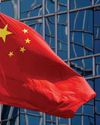
China’s more than two-year clampdown on its sprawling technology sector may finally be ending. And global investors have raced to snap up shares so far this year. Beijing is looking to resuscitate its technology sector growth in order to rescue its ailing economy. The years-long campaign to rein in China’s internet platform companies is largely complete, Guo Shuqing, the Chinese Communist Party’s (CCP) chief of the People’s Bank of China (PBC), has announced.
Guo further stated that ongoing supervision would be “normalized,” and Beijing would provide support to internet platform companies to “play a larger role in jobs creation and global competition.” Since Guo is also chairman of the China Banking and Insurance Regulatory Commission (CBIRC), these statements suggest that policymakers are changing their approach regulating large tech firms such as Alibaba Group and Tencent Holdings.
Beijing initially took aim at these tech giants—some of the most valuable companies based in China—beginning in late 2020, warning that these firms held too much power and controlled too much information. The crackdown that ensued entangled firms such as Alibaba, Ant Group, as well as e-commerce operators, ride-hailing services, and food delivery companies. Ant Group’s IPO was halted, and Didi Global’s U.S.-traded shares were delisted. The tough stance policymakers took on the industry caused waves of stock market sell-offs of China tech stocks in the United States, Hong Kong, and China, with many firms seeing more than 50 percent of their values wiped out during the two-year long crackdown.
Diese Geschichte stammt aus der February 2023-Ausgabe von Indian Economy & Market.
Starten Sie Ihre 7-tägige kostenlose Testversion von Magzter GOLD, um auf Tausende kuratierte Premium-Storys sowie über 8.000 Zeitschriften und Zeitungen zuzugreifen.
Bereits Abonnent ? Anmelden
Diese Geschichte stammt aus der February 2023-Ausgabe von Indian Economy & Market.
Starten Sie Ihre 7-tägige kostenlose Testversion von Magzter GOLD, um auf Tausende kuratierte Premium-Storys sowie über 8.000 Zeitschriften und Zeitungen zuzugreifen.
Bereits Abonnent? Anmelden

Globalism, Freedom & Democracy Do Not Mix
The world today is packed with wealthy institutions and individuals that stand in revolt against the ideas of freedom and democracy. They do not like the idea of geographically constrained states with zones of juridical power.

WORLD DEVELOPMENT REPORT 2024 THE MIDDLE-INCOME TRAP
A World Bank report titled 'World Development Report 2024: The Middle-Income Trap' indicates that India may take up to 75 years to attain just a quarter of the United States' per capita income. The insights in the report provides a useful reality check for India's ambitious goals, such as becoming a developed economy by 2047 or reaching a $5 trillion economy within the next three years.

IN CONVERSATION: "We are working with a Vision 2035. I'm sure within next 5 years we will be ranking among the Fortune 500 companies.”
Sudarshan Pharma Industries Ltd., led by its promoters, Mr. Hemal V. Mehta, a chemical engineer, and Mr. Sachin V. Mehta, has established a strong foundation in specialty chemicals and bulk drugs. Their relentless enthusiasm is visible when they speak. Indian Economy & Market reached out, to piece together the company's achievements and new initiatives in detail.

Sudarshan Pharma Industries Ltd. A MULTIBAGGER IN MAKING
Sudarshan Pharma Industries Ltd. operates across various sectors in both the pharmaceutical and chemical industries, with a focus on specialty chemicals and intermediates, which find applications in Indian Le pharmaceuticals, paints, food products, and adhesives.

MUTUAL FUND LITE OR MF LIT PROMISING PROGRESS FOR INVESTORS
The SEBI has streamlined rules for passively managed schemes to have the impact of letting more players in the mutual fund ecosystem and offering diversified, low-risk investment options to retail investors. It would increase market liquidity and attract participation from old as well as new Asset Management Companies (AMCs). Shivanand Pandit feels that MF Lite is going to democratize investment opportunities in the Indian financial market.

BRICS Member States Ready to Dethrone Dollar
AS the US weaponises the dollar in the Russian and Iranian sanctions, there is increasing desire by other developing countries to seek alternative currencies for trade, investment, and reserves, as well as developing alternative multilateral clearance systems outside of SWIFT.

7 BEST PHARMA COMPANIES
The pharmaceutical industry in India is expected to reach $65 Bn by end of 2024 and to $130 Bn by 2030. India is a major exporter of Pharmaceuticals, with over 200+ countries served by Indian pharma exports. While Nifty's performance has been lackluster over the past month, several pharmaceutical stocks have shown resilience.

NEW INVESTMENT PRODUCT CATEGORY IS SEBI'S LATEST MOVE COMMENDABLE?
The Securities and Exchange Board of India (SEBI) has introduced a consultation paper proposing a new investment product category aimed at addressing a specific market need. This proposed asset class would offer investment options that sit between mutual funds (MFS) and PMS, filling a gap and providing greater flexibility in portfolio management. The new investment vehicle is designed for investors who are prepared to take on riskier market positions but find PMS schemes or AIFs out of reach. SEBI after reviewing the feedback and finalizing the regulations through stakeholder discussions, may issue the final regulations.

DECODING THE CHINA MYTH
Myths die hard. Among these is the great myth that China's poised to take over the world. Here, James Rickards debunks that myth.

What Is In Store For The Indian Economy?
Until the 2014 Lok Sabha elections, when the Bharatiya Janata Party secured 282 seats and Narendra Modi ascended to power, India experienced 21 years of coalition governments. A decade later, the BJP holds 240 seats in the Lok Sabha, and India is once again governed by a coalition. Fitch has indicated that coalition politics and a weakened mandate for the NDA could hinder the passage of ambitious reform legislation. It raises the question: Do coalition governments impede the economic reform agenda?